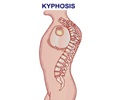New research suggests that taking aspirin regularly may reduce risk of osteoporosis.
Researchers at the University of Southern California, School of Dentistry have uncovered the health benefits of aspirin in the fight against osteoporosis, which affects men and women alike.The study identifies aspirin's medicinal role on two fronts.
In mice, the drug appears to prevent both improper bone resorption and the death of bone-forming stem cells.
According to Associate Professor Songtao Shi and Research Associate Takayoshi Yamaza of the USC School of Dentistry's Center for Craniofacial Molecular Biology (CCMB), an aspirin regimen appears to help mice recover from osteoporosis in two useful ways, striking a balance between bone formation and resorption.
In women, bone loss is greatest during the first few years after menopause. Osteoporosis occurs when bone resorption (loss of bone) occurs too quickly or when formation (replacement) occurs to slowly.
According to Shi, the removal of the ovaries and the resulting decrease in estrogen induces osteoporosis in mice, much like the onset of the disease in post-menopausal women.
Advertisement
However, there seems to be another side to the T-lymphocytes', or T-cells', role in osteoporosis, Yamaza says.
Advertisement
"After infusing the mice with T-cells, the T-cells impaired the function of bone marrow mesenchymal stem cells as well as caused osteoclast numbers to increase," he said.
The bone marrow mesenchymal stem cells, or BMMSC, differentiate to become many different cells including osteoblasts, the cells responsible for bone formation.
If this processed is impaired by T-cells, bone formation cannot keep up with bone resorption caused by osteoclasts, and bone mineral density decreases - the hallmark of osteoporosis that leads to skeletal structural deterioration and fractures.
An aspirin regimen has been linked in earlier epidemiological studies to better bone mineral density, but the mechanisms of its interactions in regards to bone health had not yet been studied extensively, Shi said.
Another exciting aspect of the aspirin treatment is that the dose administered to the mice in order to increase their bone mineral density is the same as that of a typical human aspirin regimen when adjusted for body weight differences, he adds.
While the species difference is still a factor, the results are promising.
The study will be published in PLoS ONE.
Source-ANI
RAS/K













